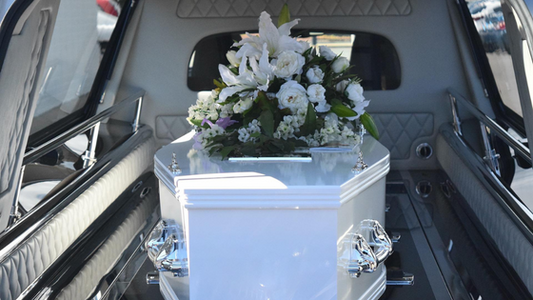Understanding Funeral Home Services
Navigating through the loss of a loved one can be an overwhelming experience. Understanding the range of funeral home services available to you can provide some clarity and help you make informed decisions during this difficult time.
Immediate Steps After Loss
When a loved one passes away, the first step is to ensure their respectful and dignified transfer from the place of death to a funeral home. Companies like Basic Funerals offer 24/7 transfer services, ensuring prompt and respectful transportation of your loved one.

Following the transfer, the funeral home may offer professional embalming services, including restoration and sanitization. This is particularly important if you're considering an open-casket viewing, as it helps present your loved one peacefully.
During these initial steps, the funeral home will also assist with the necessary paperwork, permits, and documentation required for the funeral process, easing some of the administrative burdens you may face.
For a detailed list of immediate steps to take following a loss, refer to our funeral preparation checklist.
Types of Funeral Services
The type of funeral service you choose should honor the life and preferences of your loved one. Funeral homes typically offer a range of services that cater to different cultural, religious, and personal preferences.
- Traditional Funeral Services: These services often include a viewing or visitation, a formal funeral service (either in the funeral home, a church, or another location), and the necessary transportation.
- Memorial Services: Held without the deceased's body present, these services can be arranged after the burial or cremation, allowing for more flexibility in scheduling and location.
- Direct Burials and Cremations: For those who prefer not to have a formal service, funeral homes offer direct burial or direct cremation options.
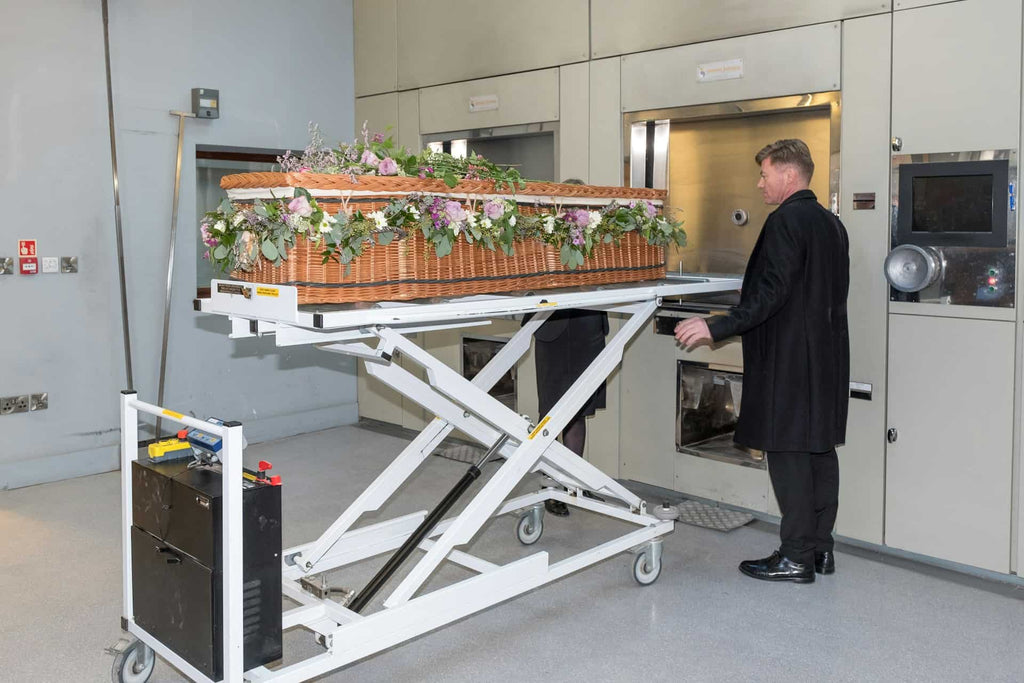
In addition to these services, many funeral homes now offer personalized options, such as eco-friendly choices and even crowdfunded memorials, to meet the unique needs of each family.
When selecting a funeral service, it is crucial to consider the reputation of the funeral home, the range of options available, and transparent pricing to avoid unexpected costs. For a comprehensive understanding of the costs associated with different types of funeral services, visit our guide on funeral service costs.
A funeral home's role is to guide you through these initial stages with compassion and professionalism, ensuring that your loved one is honored in a way that is meaningful to you and your family. Remember, it's never too early to start thinking about pre-planning, and you can find more information on funeral pre-planning here.
Preparing for the Service
In the midst of loss, preparing for a service can feel overwhelming. Knowing what steps to take can provide some solace as you honor the memory of your loved one. The two fundamental elements you will need to consider are the venue for the service and the funeral products that will be used.
Choosing the Right Venue
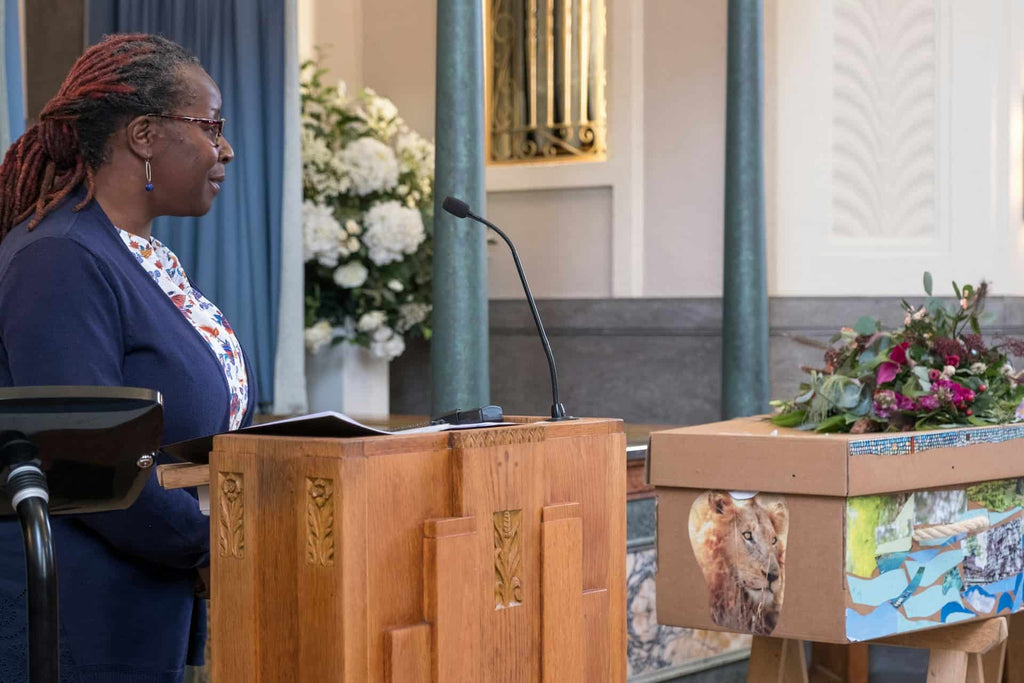
Selecting a venue for the funeral service is a deeply personal decision. Many choose a funeral home because it provides a dedicated space that is equipped to handle the specific needs of a service. When looking for a venue, consider the following:
- Location: Is the venue easily accessible for all attendees?
- Size: Can the venue accommodate your expected number of guests?
- Facilities: Does the venue have the necessary equipment and amenities?
- Atmosphere: Does the space reflect the tone and dignity of the occasion?
Funeral homes often offer a range of funeral and memorial service options, from traditional to more personalized services. It's worth touring a few venues to find the one that feels right for your family's needs.
For more guidance on choosing the right venue, check out our funeral planning guide.
Selecting Funeral Products
The choice of funeral products is essential to the service. Products such as caskets, urns, and memorial keepsakes are tangible representations of the life and legacy of your loved one.
Here are some considerations when selecting funeral products:
- Material and design: Reflect your loved one's personality and preferences.
- Budget: Align your selections with what you are willing to spend.
- Cultural or religious significance: Honor any traditions or customs that are important to your family.
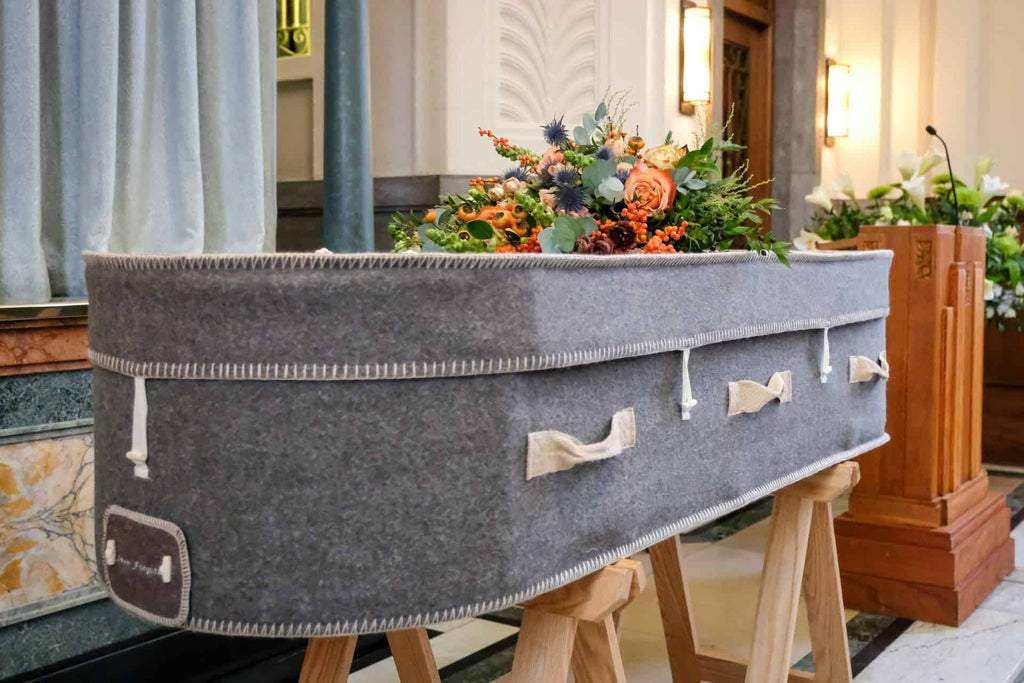
Funeral homes often offer a selection of caskets and urns, allowing families to choose the most suitable option for their loved one's final resting place. Here is a simple table to help you consider your options:
| Product Type | Description | Price Range (USD) |
| Casket | A variety of materials and designs | 500 - 5,000+ |
| Urn | For cremated remains, various materials | 100 - 1,000+ |
| Keepsakes | Personalized items to commemorate | 20 - 200+ |
The specific funeral service costs will vary based on the products and services chosen. Inquiring about package options and any included services is important to fully understand what will be provided. For a comprehensive list of what to prepare, refer to our funeral preparation checklist which can help you organize the necessary steps during this difficult time.
Selecting the venue and funeral products are just parts of the process of funeral pre-planning. Considering these elements carefully can ensure that the service is a fitting tribute to your loved one.
Personalizing the Farewell
A farewell service is a deeply personal event, and personalizing the details can be a meaningful way to honor your loved one's unique life and legacy. Funeral home services offer a variety of options to ensure that the final goodbye is as special as the person it represents.
Options for Transportation
The journey to the final resting place is a significant part of the farewell process. Traditional hearse services are commonly chosen for their solemn dignity, but there are alternatives for those seeking something more unique, such as motorcycle hearses for those who loved the open road, or horse-drawn hearses for a timeless and stately choice reflecting historical or cultural significance.. These options can be particularly poignant if they resonate with your loved one’s personality or cultural background.
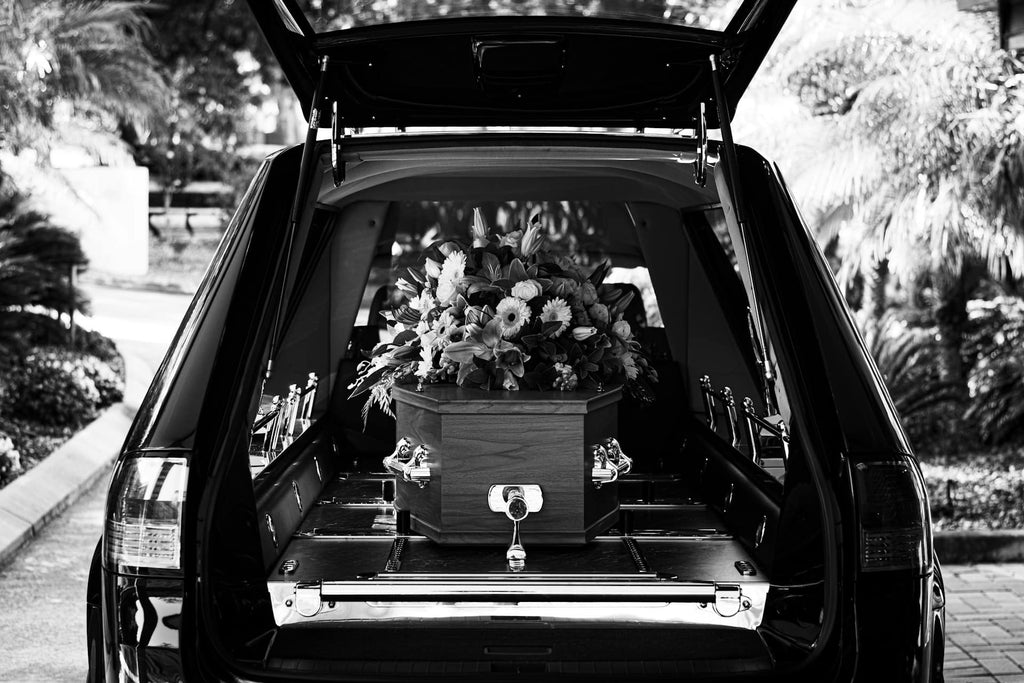
When arranging transportation, consider the route as well. Some families choose to pass by significant landmarks or places of importance to the deceased. This can be a touching tribute and a chance for a final farewell in places that held meaning in their life.
Custom Tributes and Memorials
Creating a tribute that reflects the essence of your loved one is an essential aspect of personalizing a funeral service. Here at Funeral Templates, we have a range of customizable templates including programs, photo displays and prayer cards. Once you've added your own photos and text, these personalized tributes can help tell the story of the person you're honoring and provide comfort to those in attendance.
Personal tributes might also include:
- A display of photographs or mementos that celebrate significant moments or achievements.
- A custom playlist of music that was meaningful to the deceased.
- A slideshow video tribute, combining images and music to share memories with attendees.
- Special readings or poems that were favorites of the deceased or that resonate with their life story.
Such tributes ensure that the service is not only a reflection of the person's life but also provides a space for shared remembrance and connection for those who are grieving.
When planning these personalized aspects, always keep in mind the funeral preparation checklist to ensure that no detail is overlooked. Also, consider exploring our funeral planning guide for more comprehensive assistance during this difficult time.
Personalizing a farewell service is a powerful way to celebrate the life of your loved one. Whether through transportation choices or custom memorials, these details can make the service deeply meaningful for all who attend.
Managing the Practicalities
When you're faced with the loss of a loved one, navigating the practical aspects of funeral arrangements can feel overwhelming. Understanding how to manage these details is essential in creating a respectful farewell while also ensuring everything is handled with care.
Assistance with Paperwork

The paperwork associated with a funeral can be complex, but funeral homes are equipped to guide you through this process. They can help obtain death certificates, write and publish obituaries, and acquire the necessary burial or cremation permits. It's important to have a professional by your side who can ensure that all documentation is completed accurately and timely.
To help you stay organized, consider using a funeral preparation checklist which can be an invaluable tool during this time. Additionally, refer to our funeral planning guide for step-by-step assistance.
Understanding the Costs
The cost of funeral services can vary widely depending on the choices you make. The specific services you select, such as embalming, visitation, funeral ceremonies, graveside services, and cremation, will all impact the overall cost.
Here is a table outlining the average costs you might expect:
| Service | Cost Range (USD) |
| Basic Service Fee | 2,000 - 2,500 |
| Casket | 1,000 - 5,000 |
| Embalming | 500 - 700 |
| Viewing and Ceremony | 400 - 1,200 |
| Transportation | 300 - 400 |
| Burial/Cremation | 1,000 - 3,000 |
*These figures are averages and can vary based on location and service providers. For more detailed information on costs, visit funeral service costs.
After finalizing the funeral plans, it's also crucial to address estate and financial matters, including reviewing wills, closing accounts, and notifying financial institutions. This part of the process helps settle the deceased's affairs and ensure their wishes are honored.
During such a challenging time, it's important to remember that you're not alone. Funeral home services are designed to support you through each step, from paperwork to understanding the costs involved. If you're looking to arrange services in advance, consider exploring funeral pre-planning to ease the burden on your loved ones in the future.
Aftercare and Support
The journey through grief doesn't end with the funeral service; it continues as you adjust to life without your loved one. Recognizing this, funeral homes offer a range of aftercare and support services designed to help you through the challenging times that follow.
Grief Counseling Offerings
It's natural to experience a wide range of emotions after losing someone close to you. Many funeral homes provide grief counseling services to support you through your bereavement. These offerings may include one-on-one counseling sessions, support groups, or referrals to therapists who specialize in grief. The aim is to give you a safe space where you can express your feelings and learn coping strategies to manage your grief.

You're encouraged to inquire about these services with the funeral home staff, who are dedicated to providing personalized and attentive care during your time of need. They can guide you to the appropriate resources, whether within the funeral home or in the community.
Estate and Financial Guidance
After a loved one's passing, there are practical matters to attend to, such as settling the estate and understanding the financial implications. Funeral homes often provide assistance with the necessary paperwork for death certificates, obituaries, and burial/cremation permits They can guide you through the process and ensure that all necessary documentation is completed correctly.
Additionally, the funeral home staff may offer guidance on estate and financial matters or refer you to professionals who can help. This support can be invaluable, as it helps to navigate the complex responsibilities that come with estate settlement.

To prepare in advance for these responsibilities, consider looking into funeral pre-planning services. Pre-planning can help alleviate the burden on loved ones by ensuring that personal preferences and wishes are honored and that arrangements are in place when the time comes.
Understanding the costs associated with funeral services is also important. For detailed information on what to expect financially, visit funeral service costs. You can also find a comprehensive funeral preparation checklist and a funeral planning guide to help you manage every step of the process.
Remember, you don't have to navigate this path alone. Funeral home services extend beyond the day of the service—they encompass the ongoing care and support needed as you move forward.
Considering the Trends
As you navigate through the process of planning a funeral, it's important to consider the current trends that can reflect your loved one's personality and beliefs, as well as accommodate the family's wishes. Let's explore how traditional services compare to modern alternatives and discuss the rise of eco-friendly and crowdfunded options.
Traditional vs. Modern Services
The way we honor our loved ones has transformed over time due to changing religious and cultural traditions and shifts in social norms. Traditional full-service burials typically include a viewing or visitation, a formal funeral ceremony, and a graveside service. These services often involve embalming and using an ornate casket.
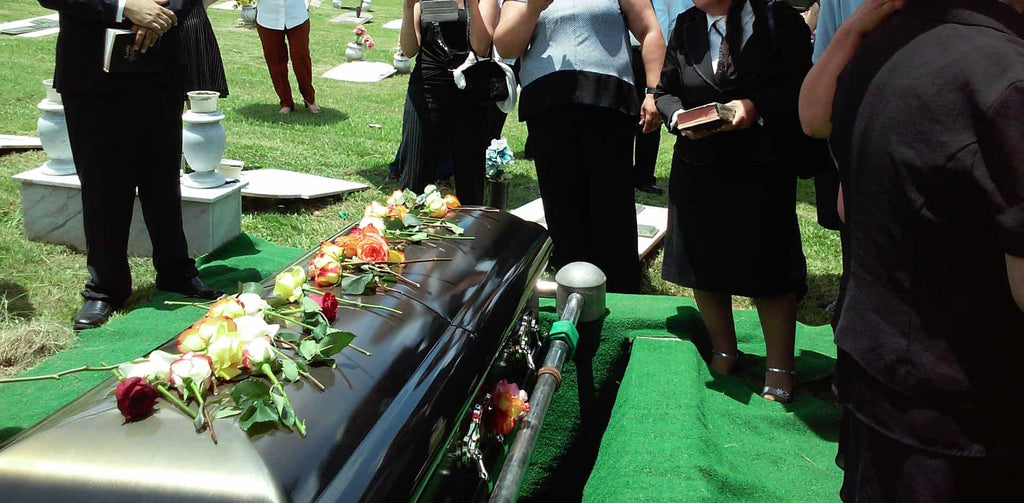
On the other hand, modern services may forgo some of these formalities. Direct burials and direct cremations are becoming more common, offering simplicity and affordability by eliminating the need for embalming, elaborate caskets, and formal services. These options allow families to have private memorials at a time and place that suits them best. For a deeper understanding of your options, reference this funeral planning guide.
Eco-Friendly and Crowdfunded Options
Eco-friendly funerals, also known as green burials, are gaining in popularity for those seeking environmentally sustainable options. These services often involve biodegradable caskets or shrouds and natural burial processes that forgo the use of chemical preservatives.
Crowdfunding for funerals has also emerged as a trend, helping families manage the financial aspects of funeral arrangements. Crowdfunding platforms can be used to gather contributions from friends, family, and even strangers who want to support the bereaved during their time of loss.
These trends reflect a shift towards more personalized and financially conscious funeral arrangements. By considering both traditional and modern practices, you can create a meaningful and respectful farewell that aligns with the values and preferences of your loved one and your family.
As you make these important decisions, it's also essential to understand the costs associated with different funeral services and how they can be managed effectively. Whether you're pre-planning or arranging a funeral after a loss, our funeral preparation checklist can help ensure that all details are considered.






